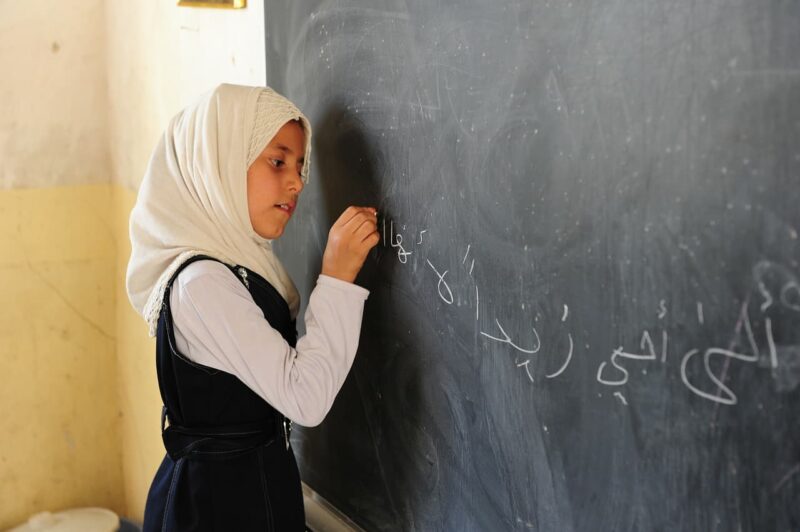My name is Koshish Mohammed and I am a journalist living in Kalar district, a small town in Garmian province in north Iraq. In my town, traditional customs are very restrictive on women. They have limited access to education and community activities. Girls are often forced to leave school between the age of 14 to 16 years old. Most of the families in my town believe that it is enough for their daughters to be literate, to be able to read and write in the Kurdish language, and then marry to continue their lives. As a journalist, I believe it is important for us to promote a larger discussion of these issues.
Learning the skills of investigative and data-driven journalism
I started writing for a local newspaper three years ago, reporting on youth and family issues in my hometown. Though I had some report writing experience, only after participating in Internews’ August 2019 Gender Sensitive Reporting training was I able to develop my first professional story, “When Education Becomes a Dream Rather Than a Right.” The training helped me learn correct writing skills and it increased my ability to write on sensitive cases with a Do No Harm approach (one of the nine ethics of journalism that deals with the question of whether everything journalists learn should be reported and, if so, how). Furthermore, I learned how to collect accurate gender sensitive information and what sources to rely on to strengthen my report and increase its effectiveness.
In this story, which was published in Nawzhin newspaper (Iraqi-Kurdistan’s first all-female-run newspaper), I focused on girls’ withdrawal from school and how that would impede their ability to become reliant and productive members of the community. I also highlighted how education could positively affect families and society in general to raise female breadwinners and decisionmakers. Girls that continue their education through university have been shown to be more capable of overcoming obstacles and are less likely to be financially dependent on their families. The report chronicles the realities of hundreds of girls and women in the Kurdistan Region of Iraq deprived from education and most of their basic rights. The story has received a lot of reader feedback since it was initially published.
Local government responds
The story captured the attention of local decisionmakers in my community. Following publication, the Gender Department of the Focus Organization for Civil Development followed up on the issue of young women quitting their studies. They conducted several meetings with the General Directorate of Education in Garmian and Kalar to obtain the correct data and statistics on the issue. The General Directorate of Education in Garmian promised to seriously work with the relevant authorities and organizations to address the root causes of the issue. Many private organizations in Sulaymaniyah and Halabja (which are very close cities to Kalar district), also responded positively.
I would like to deeply thank Internews and appreciate their great efforts for building true professional journalists to highlight the sensitive cases of Kurdish and Arab communities in Iraq in their writings.
(Banner photo: Iraq school girl. Credit Pixabay)
